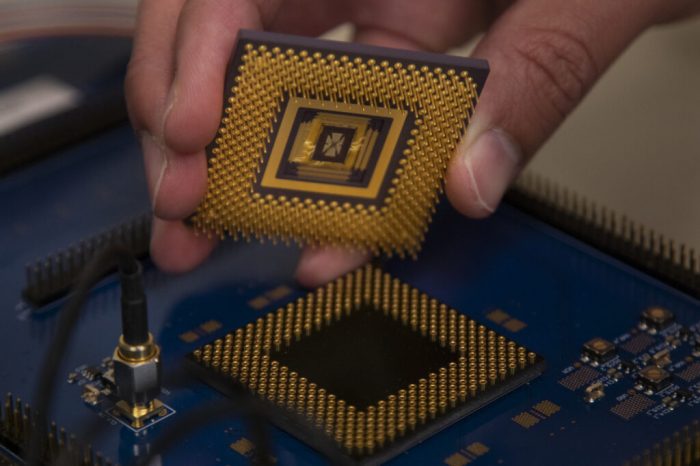
The first programmable memristor computer—not just a memristor array operated through an external computer—has been developed at U-M. It could lead to the processing of artificial intelligence directly on small, energy-constrained devices such as smartphones and sensors. A smartphone AI processor would mean that voice commands would no longer have to be sent to the cloud for interpretation, speeding up response time.
“Everyone wants to put an AI processor on smartphones, but you don’t want your cell phone battery to drain very quickly,” said Wei Lu, professor of electrical and computer engineering and senior author of the study in Nature Electronics.
The key to making this possible could be the memristor. This circuit element, an electrical resistor with a memory, has a variable resistance that can serve as a form of information storage. Because memristors store and process information in the same location, they can get around the biggest bottleneck for computing speed and power: the connection between memory and processor.
